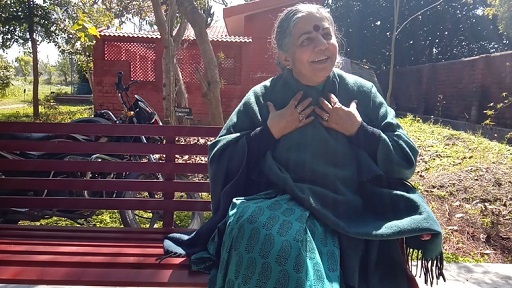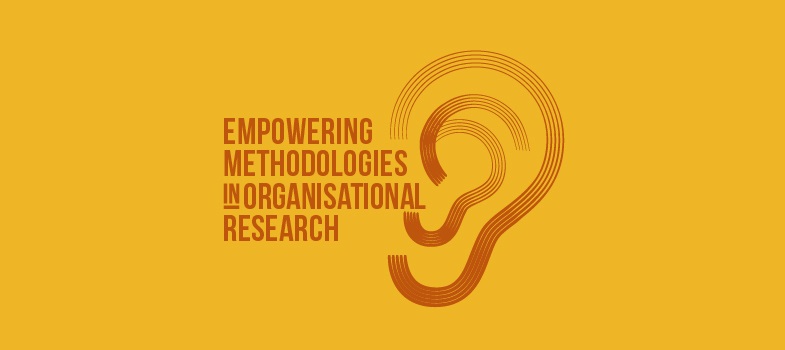Stories from the field
A third key contribution to postcolonial theory is Gayatri Chakravorty Spivak’s essay ‘Can the subaltern speak?’ (1988): the outlawing of Indian women’s practice of sati by the British colonisers is examined to find a gap in the historical record. Hence Spivak illustrates a lack of a people’s history of India and argues that the
Subalterns’ histories have been erased (Pal, 2016), yet Pal shows how contemporary subaltern discourses challenge dominant western neoliberal ideals by asserting more politically-just ways of organising society. This point underpins the central argument in the story from the field that follows. In this short film interview, Dr Vandana Shiva, the renowned scholar and environmental activist, discusses the effects of colonising practices and how her organisation in India is working to challenge them.
Project researcher Avilasa Sengupta [Tip: hold Ctrl and click a link to open it in a new tab. (Hide tip)] : an interview with Dr Vandana Shiva

Transcript: An interview with Dr Vandana Shiva
Activity: Dr Shiva interview
Watch the interview of Dr Shiva and make your own notes in response to the following questions:
- Define ‘religious patriarchy’ and ‘capitalist patriarchy’ in your own words.
- Do you see Dr Shiva’s ‘philosophy of living earth’ as a form of decolonisation? How does this work?
- What practices with nature can you think of that offer marginalised communities a means of empowerment?
We recommend that you keep notes of your answers to these questions so you can return to them during the course.
Together, the three pillars of postcolonial thought – Said (1978), Bhabha (1994) and Spivak (1988) – unpin what are understood as the ongoing problems of postcolonialism: the discursive production, subjugation and erasure of the Other to reinforce the dominance of Western thought and practices. These are complex ideas but they are fundamentally important in order to begin to understand how colonialism has created intergenerational traumas that scar current and future generations. With such a theoretical understanding, researchers can empower themselves to identify and develop research methods to decolonise.
It might seem from reading this brief introduction to postcolonialism that colonisation was a thing of the past. It is not. Today, some peoples, particularly
The key text, Decolonizing Methodologies: Research and Indigenous Peoples by Linda Tuhiwai Smith (1999) focuses on establishing a radical research agenda to engage researchers with indigenous community activists, and to empower indigenous researchers to draw on their cultural knowledges rather than on Western philosophical ideas. This therefore, raises the question of who can and should undertake postcolonial and decolonising research. The award-winning author, Alexis Wright (2016), discusses how, for too long, the stories of Australian Aboriginal and Torres Strait Islander peoples were told by non-indigenous researchers and writers, and with that paternalism came misinterpretation, misrepresentation and mythmaking. As such, the outcome was a sustained disempowering discourse of Australian indigenous peoples’ inability to overcome extreme disadvantages that informed government policies that intervened in their lives (Wright, 2016).
The narrative has begun to shift only recently, with subaltern and indigenous voices being heard in policymaking and academic debates. This is one reason why leading scholars such as Linda Tuhiwai Smith and Aileen Moreton-Robertson call for, and encourage, more indigenous researchers. This is not to the exclusion of non-indigenous decolonial scholars, but any researchers who seek to engage with marginalised communities, whether indigenous or non-indigenous, need to understand the historical and cultural contexts of participants’ everyday lives. This is because the scars of past colonial violence remain unhealed. Research that does not understand and respect this, risks reopening old wounds and perpetuating marginalised peoples’ traumas.
Introduction
